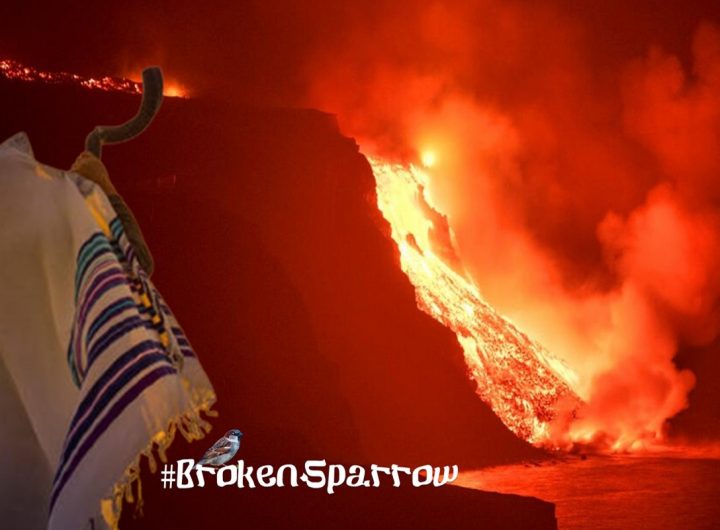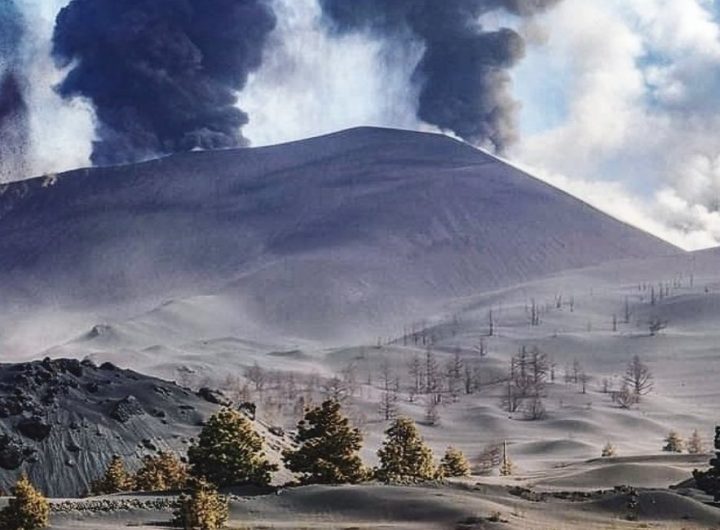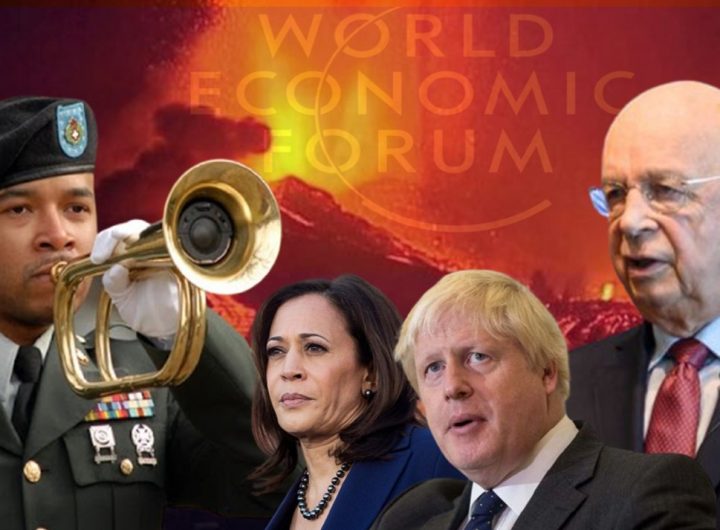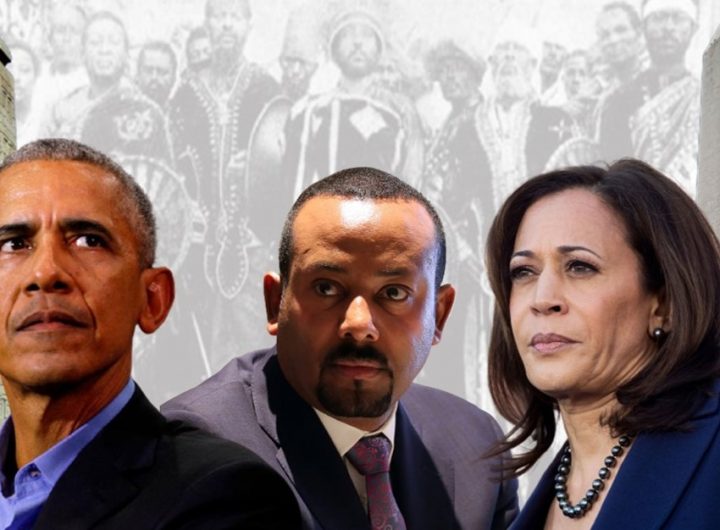I remember it like it was yesterday, a most random moment of a black guy walking the streets of Columbus, Ohio with boxing gloves on prodded me to act. This was during the heat of the 2008 presidential primaries; I traveled to the Buckeye State with my friends Mike and Jimmy under the banner of Ethiopians for Obama to get as many Ohioans registered to vote for the upcoming primary.
I approached the guy, who looked like a cross between Mike Tyson and Sugar Ray Leonard, to ask him if he was registered and to give him my spiel about Obama’s “platforms”. Before I could even get a sentence in, he abruptly cut me off and said “I’m not voting for that n***a, I’m voting for Hillary”.
He said that with such a level of disdain in his voice that I was taken aback; I wanted to engage him in a debate but seeing that this fella was walking around in broad daylight with boxing gloves on, I decided the better of it and walked away instead of offering my body as a punching bag in defense of a politician I never met—there is a limit to my audacity.
Though that incident was extreme, it was by no means the exception but the norm. You would never be able to tell now seeing how much support Obama enjoys within the African-American community, but 12 years ago, the reality of his support level within the African-American community was anything but overwhelming. There is no need to mince words here; sometimes harsh truths are needed in order to wash away soft lies that keep us back as a people. The first black president would not have won in 2008 if lily “white” Iowans did not endorse his candidacy, it was WASP acceptance that made us embrace Barack.
Before Obama won Iowa, Hillary Clinton had a marked advantage within the African-American voting bloc. A poll commissioned by CNN revealed that Hillary garnered 53% of the “black” vote while Obama was lagging behind at 33% three months before votes were cast in the nation’s first primary. Had Hillary pulled out a win in Iowa, Obama would have been a footnote in history no different than Jesse Jackson.
All that changed when Obama won Iowa; the paradigm shifted overnight as South Carolina went from a reliable Hillary state to a tossup. By the time the New Hampshire primary was called and the show moved on to the Palmetto state, with the help of Oprah Winfrey—who might have delivered the presidency to Barack when she endorsed him when the primary season started—Obama won the state and the rest is history.
I bring this story up for a reason, this theme of “black” people rejecting our own until they are accepted by “white” people happens over and over again. Witnessing these realities from two different prisms, one as an Ethiopian and the other a person who has the lived experiences of an African-American, has opened my eyes to the ways we contribute to our own marginalization even as we protest and demand equality from others.
I used to tell my fellow Ethiopians to stop marching, that protesting was for a defeated people, and instead organize in ways that would turn us into economic powerhouses and by extension give us the clout that politicians could not afford to ignore. This advice of mine fell on deaf ears countless times; it’s always easier to be reactionary than it is to do the hard work needed to foster a sense of community and shared interests.
Whatever ails the Ethiopian community likewise mauls the African-American community. I’ve been told repeatedly in the past that “black folks” had it better during segregation because back then they had no choice but to support their own businesses and reinvest their money where they live. Integration gave incentive to the “talented 10th—a term Du Bois coined to identify 10% of African-Americans who could lift the other 90% out of poverty and hopelessness—to chase their own dreams and leave the majority mired in the nightmare of economic distress.
I’m not here to deny “black” excellence; truth is as many obstacles that society puts before us based purely on our complexion, there is a vibrant group of workers, business owners and creators who succeed in spite of racism. The reality of these systemic handicaps is even more stark among the survivors of America’s second holocaust that was the slave trade. As a first generation immigrant from Ethiopia, I can never truly grasp the full scope and weight of the intergenerational traumas that have been passed down since the first human being was stolen from Africa and turned into chattel.
At the risk of giving unasked for advice, I must say that the generations who braved slavery were not slaves, they were champions who endured what few could have been able to endure. Their victory was surviving and their defiance was giving birth in the midst of death, in this way, I view African-Americans not as descendants of slaves but as descendants of champions. Be careful about how you refer to yourselves, in the tongue lies the power of life and death, what you call yourself you will become.
On a broader level, as much as the game is stacked against us and as many injustices continue to be purveyed on people of original melanin, the truth is that we have a lot more power in us than we are conditioned to believe. If we have faith in each other, if we supported each other’s ventures and reinvested our money within our communities, we could create small pockets of wealth that could emanate outward and lift millions out of bondage.
Sadly we do the opposite; as more and more communities collaborate and thrive, too many of us, whether in Africa or the African diaspora, continue to compete and whither. In the Jewish community, a dollar is reinvested at least seven times within their community before it is spent outside. In our communities, dollar in leads to dollar out. Perhaps people should spend less time spinning wild theories about Jews owning the world and spend more time trying to replicate their efforts—don’t hate, emulate. For the record, this should not be taken as an endorsement of Zionism which has NOTHING to do with Judaism.
What saddens me the most is witnessing the potential that we have go to waste on a regular basis. My father used to tell me that the cemetery is full of treasures that were never realized, people taking their talents to their graves without ever understanding the true powers that reside in their spirits. When it comes to our communities, we are pallbearers of endowments. There are legions of young and uber-talented risk takers who disavow a life of 9-5 grind in order to strike out on their own. Most of them flounder and eventually go back to the jobs they hate because they could not get the financial and emotional support from their own families, friends and networks.
I’m not referring to charity here. I’m talking about people who have goods that are valuable, whether it’s products they are selling or their knowledge that they are marketing, that would have value if not for their outward identity. When “black” people open up restaurants, the questions they field the most is “can I get a discount” even though these same people would never ask McDonald’s for a markdown. This same scenario plays out over and over again, as people who regularly fork over their money to corporations all the sudden get stingy when that money might go to someone that looks like them.
If Shakespeare was “black”, we might have never heard of him. If Mozart was Haitian, he would have been a gifted pianist playing at a local bar. If Monet was African-American, he would have lived a life of economic uncertainty, painting graffiti on the weekends while working at Starbucks as a barista during the week. If Thoreau was Ethiopian, the world would have never heard of him, he would be writing on a blog while working a full time gig. Talent after talent wasted generation after generation because we refuse to give our prodigies a platform and only embrace the few who are plucked out of obscurity by others while we ignore the diamonds at our feet.
There is a psychology of insufficiency behind this level of self-nullification; we are reticent to embrace our own when they are struggling only for a stampeded to be set off when the same person we overlooked is embraced and elevated by someone who is “white”. This exact scenario played out with Abel Tesfaye, a most talented rapper/singer who was once homeless as he struggled to make a name of himself. His prodigious gifts were ignored by the very same Ethiopian community that he was born into. The minute he was accepted by Drake, more importantly signed by a record label, and once he changed his name to the Weeknd, all the sudden a sea of Ethiopians could not get enough of his name.
This is the pattern that plays itself out over and over again in the Ethiopian, the African-American and the African diaspora writ large. I talked to Obang Metho, a human rights advocate within the Ethiopian community, yesterday evening and I asked him how we, as Ethiopians and the wider African diaspora, can extricate ourselves from this web of self-devaluing that is at the root of our collective suffering, Obang noted:
“What we are missing is the common good, the common vision, what TPLF took away over the past 27 years is the idea of a collective identity and replaced it with individual ethnicity. They did this on purpose, when people don’t have a common agenda, it is easy to conquer them when they are divided. This is exactly what they did. What we have in Ethiopia today is a land full of young people who are conditioned to say that they do not have a common identity. They even say that they are not human first they are their ethnicity above all else. Without a common humanity, there is no common identity which leads to suffering for all. The solution is to go back to the drawing board and understand our common humanity.”
What is true of Ethiopia is true of America and the world. We live in very dangerous times where the 1% who are united weaponize information, demagogues and grievance to incite us and create strife. The rest of the world is catching up to these manufactured tribalism that has been loosened upon Africa and her children for centuries; if we keep marching down this path, we could very well be headed towards our final dissolution.
Even if the worst case scenario was not to take place and instead we remain with the status quo, this too is untenable. How much longer are we going to remain mired at the bottom of this caste system that is race? How many more generations must pass before we stop waiting for Moses to save us and instead save ourselves? The solution is simple, support each other and reinvest our resources where we live and we will become self-sufficient. Or we can continue to gripe about the past and letting our spirits be sunk by grievance only to remain invisible citizens.
Original Quote: “Treat the earth well: it was not given to you by your parents, it was loaned to you by your children. We do not inherit the Earth from our Ancestors, we borrow it from our Children.” ― Crazy Horse
— Kuwpa (@TrueBlackPower) October 12, 2019
For the record, people who read my work know how much I hate identity politics and how I detest these imposed labels “white” and “black”, however just because I am against something doesn’t mean I don’t acknowledge its existence and reveal the extent it harms all of us without regard to our differences. The more I think about Martin Luther King’s speech, the more I am awed by his prophetic words; until we are judged for the content of our character and instead are assessed by the complexion of our skin, we will keep walking away from the promised land of justice as we keep marching for equality we will never get.
In a way, this is personal for me, I too know what it feels like to be dismissed and marginalized by my own people time and time again. I’ve let the odious words of some who refer to me as a “nobody” and dismissed me out of hand really take a toll on me. over the years On more than one occasion, I found myself sunk into the deep hole of depression because I could not understand why and how we can do this to each other. In some ways, that is why I took credit for speech idea that was incorporated into the Obama South Carolina primary speech twelve years after the fact, I was just trying to put that hurtful part of my life in the past.
I used to take these things personally but with age came wisdom. Here is what I have learned: proximity breeds indifference, this is true especially when people feel hurt. Generation of being marginalized and centuries of being conditioned to see ourselves as lesser than has exacted a heavy mental and spiritual cost. That is why we are better off listening to prophets with guitars like Bob Marley instead of listening to politicians with forked tongues who keep offering the snake oil of hope without changing anything once they get elected. We must free our minds from mental slavery; when that day arrives, we will not beg for reparations nor ask for aid from the world—we will take care of ourselves:: #Hebret Click To Tweet
Unity requires U n I, when You and I work together, we can move mountains, when You and I divide, we will keep getting buried by mountains::
I usually put a contribution button at the bottom of my articles to give readers the option of contributing as they can, that is because the Ghion Journal is centered on a concept I came up with when I was homeless in Colorado that I titled “a business case for kindness”. But today, I’m asking you to contribute as you can to an Ethiopian cultural group called Fendika that tours around the world highlighting and promoting Ethiopian dance, music and arts. Click HERE or on their picture below to be redirected to their website where you can find out more about them and contribute as you are able.
You see, when they succeed, I succeed, because doors they open, open doors for me too. This is the essence of hebret, collaboration, when enough people value this concept, we will be a better nation instead of being a beggar country::
- Tsunami Clarion Alert: Last Call, May God Be With All of US and May Hosanna Deliver Humanity - October 17, 2021
- Confessions of a Broken Sparrow: What I Got Right and Where I Erred about My Tsunami “Prediction” - October 17, 2021
- Memo to US Military and Freedom Defenders: In the Event of a Tsunami Terror Attack, We Must Go Accountability Hunting - October 16, 2021





